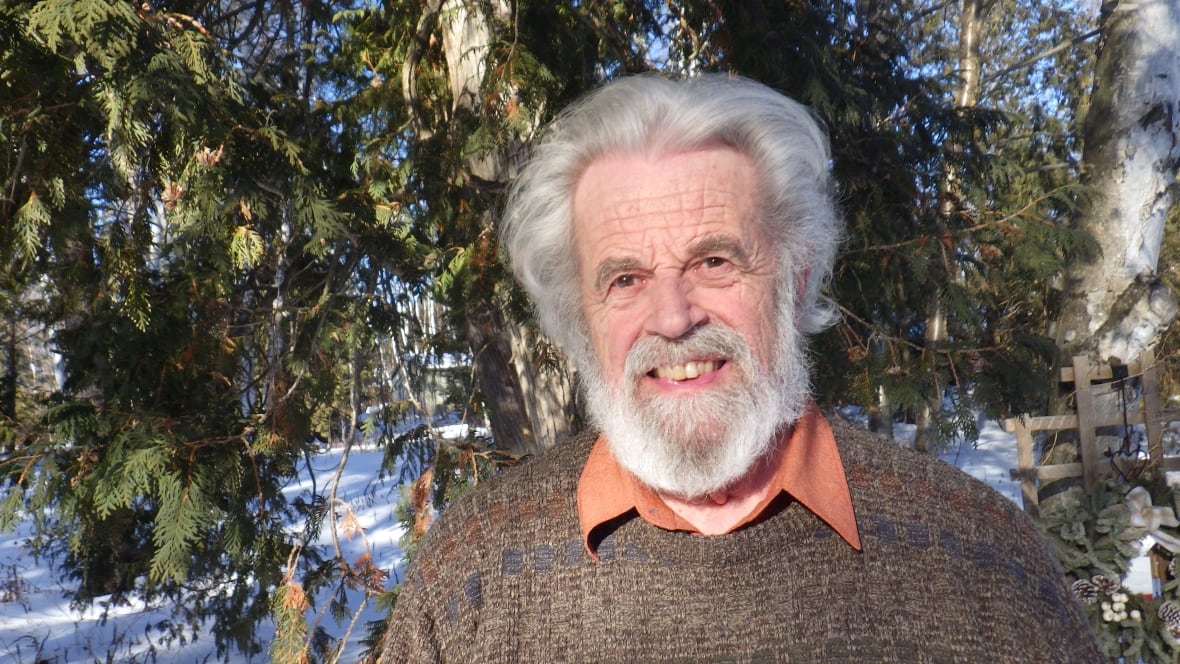Why a United Nations court ruling will impact climate change efforts in northern Ontario
Climate experts say the ruling could be useful for future lawsuits

The United Nations' top court says countries failing to implement measures to mitigate climate change may be in violation of international law, opening the door for nations harmed by its effects to seek reparations.
Climate experts in northeastern Ontario believe this ruling will significantly influence national climate policies and future legal challenges.
In an advisory opinion delivered at the Peace Palace in The Hague, Netherlands on Wednesday, 15 judges at the International Court of Justice (ICJ) unanimously said a clean and healthy environment is a human right.

"[The ICJ] made it clear that all nations, and that includes Canada, have a legal duty to prevent climate harm. And that's not just through direct emissions, but by avoiding actions and inactions that are actually worsening the climate crisis," said Kerrie Blaise, the founder and legal counsel for the non-profit environmental law organization Nature's Defence, based in North Bay.
Blaise explained that while the decision is non-binding — since the court does not have the power to impose the ruling — it's an international law that she believes will be relied on in courts in Canada and Ontario.
She said the judges were tasked with coming up with an answer as to what the obligations of countries are under international law to protect against the impacts of climate change and what are the legal consequences if harm isn't prevented.
Blaise used Canada as an example, explaining the judges looked at the national legal obligations under several treaties and international conventions, including the Paris Climate Agreement and the Convention on Biological Diversity. The court then unpacked each of those conventions to pull out the articles that present an obligation on Canada to act.
"[The judges] spoke about climate being inherently globally applicable. So they're writing in a way that doesn't name Canada outright. It names states who are the nations who are signatories to these agreements," she said.
"And it talks about the duties they have to cooperate on this global scale to actually protect the environment and prevent climate harm."
Climate change impacts in Ontario

David Pearson, a professor emeritus with the School of Natural Sciences at Laurentian University in Sudbury said climate change is already causing damage in Ontario.
"The northern part of the province up toward Hudson Bay is warming between two and three times faster than the planet as a whole," Pearson said, adding that it's because of what's happening to the summer ice in the Arctic.
"Instead of reflecting the sun's energy from that ice, the darker water is absorbing that energy, which is warming the Arctic. And that's what's making a difference to northeastern Ontario. There will be no summer ice in the Arctic by about 20-50 years."
He added that as the permafrost melts, it begins to change from something that stores carbon to a source of carbon because of the microbial activity — the processes carried out by microorganisms like bacteria, fungi and archaea — taking place in the peat, which is the organic soil that accumulates in peatlands.
"There is the beginnings of science that is saying that it's possible that during that decomposition of the peat, there's sufficient warmth generated that there might be spontaneous combustion," Pearson said.
What that means is a fire could be started not by lightning but by the warmth generated in decomposing peat.
Pearson said for First Nation communities in the far north of Ontario, extreme heat waves could become more frequent and deadly.
"The serious problem, which in fact would and can perhaps kill people… is the growth of heat stress… When you add the humidex to those temperatures, you end up with dangerous levels in the 37, 38 even 40 degree range," he said.
Holding Canada accountable
Blaise said the International Court of Justice's ruling is "directly relevant to Canada's actions and what we see here in Ontario."
"Federally, the government has committed to essentially half our emissions by 2030. So that would be 440 megatons," Blaise said.
"The Canadian Climate Institute, they are reporting that we are quite behind this net zero pathway by about 109 megatons and this is a requirement… It is legally required of Canada to meet this emission target by 2030."
Blaise explains that's why the world court's opinion is pivotal since it's trying to get countries like Canada to uphold and enforce their climate goals.
She added the ruling could also be useful for court cases, including the climate lawsuit launched by young activists against the Ontario government for not doing enough to fight climate change, with weaker emissions targets than those set up by previous governments.
"In Superior Court or in Federal Court, you can draw on international conventions and treaties to which Canada has signed on," Blaise said.
"[The Supreme Court of Justice] recognized that there is a disproportionate burden and impact on young people as a result of climate change. And so that case is is pending a rehearing in the Ontario Superior Court of Justice."
With files from Morning North

